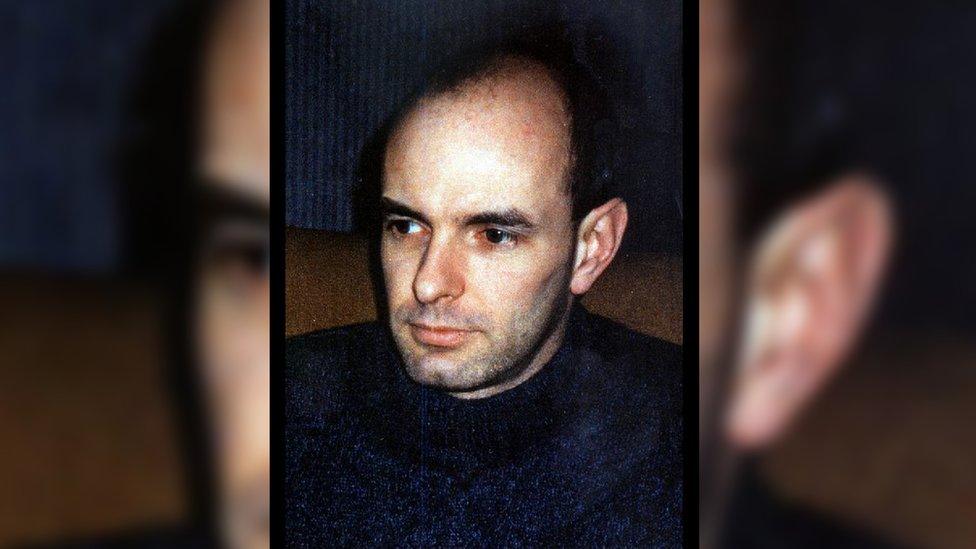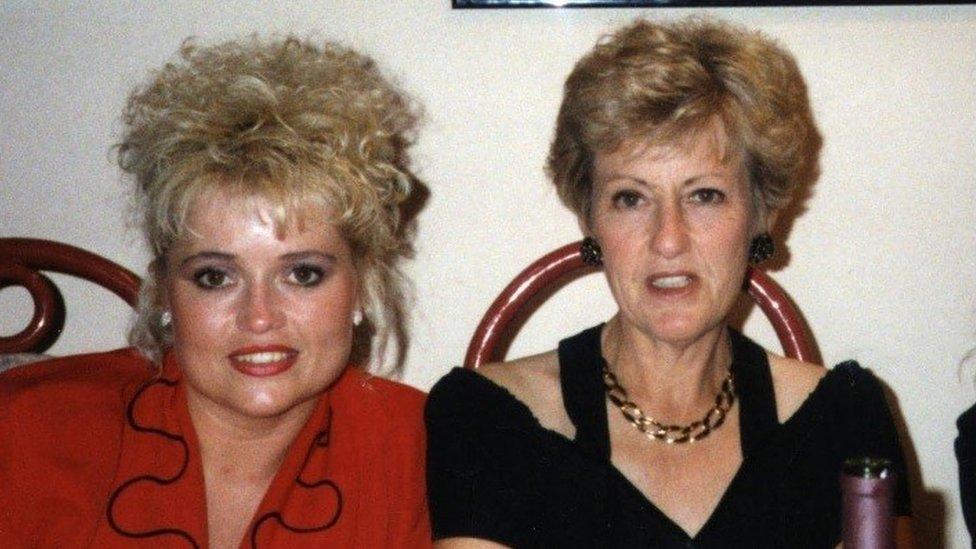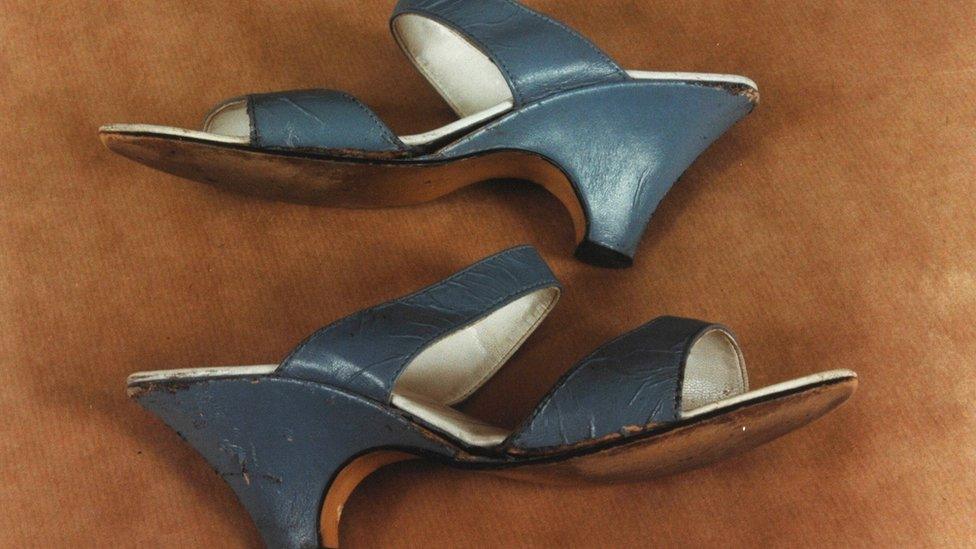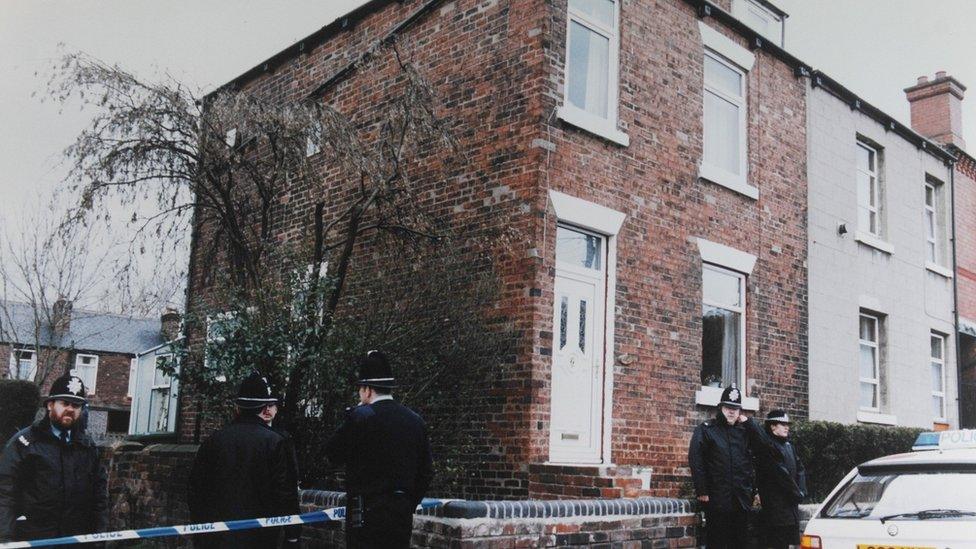Wendy Speakes murder: Shoe fetish killer's parole hearing adjourned
- Published

Christopher Farrow was jailed for life in 2000
A parole hearing for a man with a shoe fetish who raped and murdered a woman in her own home has been adjourned for at least four months.
Christopher Farrow, 61, was jailed for life in 2000 for killing Wendy Speakes, 51, at her home in Wakefield in 1994.
His case, which was scheduled to be heard at HMP Whatton in Nottinghamshire on Friday, was adjourned to allow for "further information to be received".
Mrs Speakes' daughter is campaigning for Farrow to remain in prison.
Farrow forced his way into Mrs Speakes' home in Balne Lane before tying her up and forcing her to wear a pair of blue mule shoes.
She was then raped and stabbed to death.
After pleading guilty to her murder, Farrow was jailed for life and told he must serve a minimum of 18 years.

Mrs Speakes' daughter Tracey Millington-Jones said women would be at risk if Farrow was released
Mrs Speakes' daughter Tracey Millington-Jones, who lives in Essex, told the Local Democracy Reporting Service she had been told that Farrow's review was now likely to be held in March or April next year.
"Although I am disappointed because I travelled to Nottinghamshire, I have to put my faith in the Parole Board that they will make the right decision," she said.
"The fact that they have requested further information appears to show they are being very thorough, which reassures me I think.
"I will keep fighting for justice for mum and the safety of women in general because life should mean life," she added.

Farrow forced Mrs Speakes to wear a pair of blue mule shoes before killing her
Following Mrs Speakes' death a huge police investigation was launched with DNA tests carried out on thousands of men.
Farrow was caught in 2000 after fingerprints taken from him during a 1996 drink-driving arrest matched those in an unsolved crimes database, while his DNA was linked to blood found at the crime scene.
Mrs Millington-Jones previously said she feared if released, Farrow would strike again and that the "local community would be living in terror".
"My family would be distraught at the fact he would be living a free life, a life that he cruelly took away from my mum," she added.
A Parole Board spokesperson said: "Parole Board decisions are solely focused on what risk a prisoner could represent to the public if released and whether that risk is manageable in the community.
"A panel will carefully examine a huge range of evidence, including details of the original crime, and any evidence of behaviour change, as well as explore the harm done and impact the crime has had on the victims."
They added: "Protecting the public is our number one priority."

Farrow carried out the random killing at Mrs Speakes' home in Balne Lane, Wakefield
Farrow's first parole hearing in 2018 recommended he be moved to an open prison in preparation for eventual release, but he was later returned to a secure prison.
In 2020, he was deemed unsuitable for release and the panel ruled he should be transferred to an open prison.

Follow BBC Yorkshire on Facebook, external, Twitter, external and Instagram, external. Send your story ideas to yorkslincs.news@bbc.co.uk, external.
Related topics
- Published22 November 2022

- Published9 December 2020
